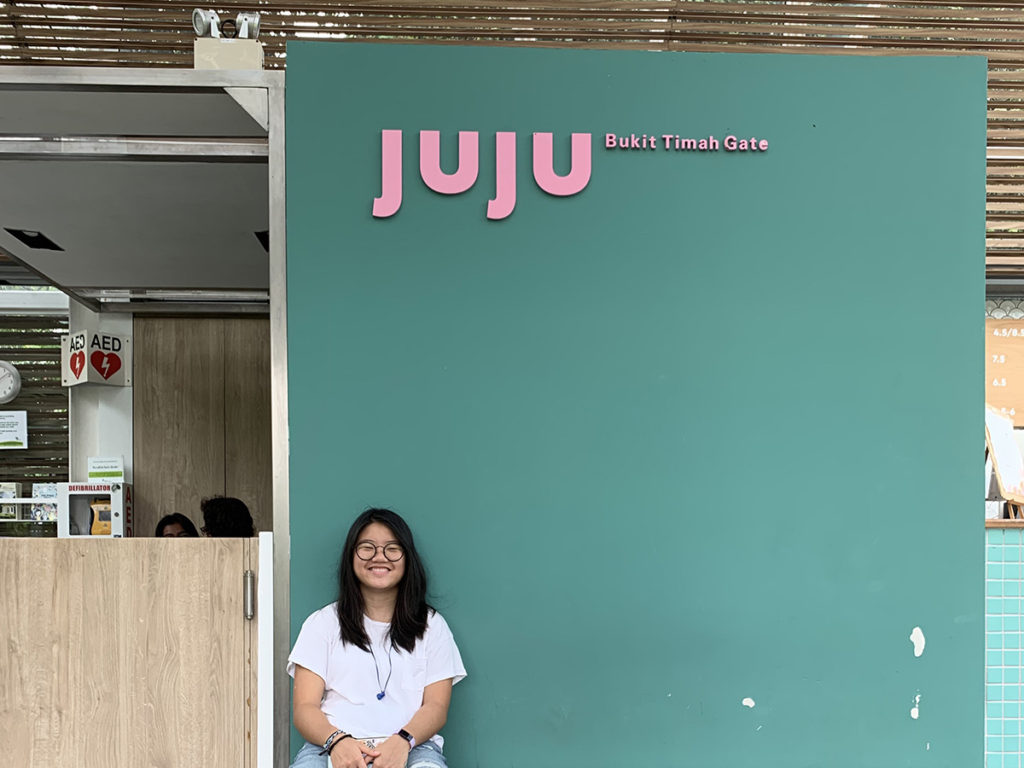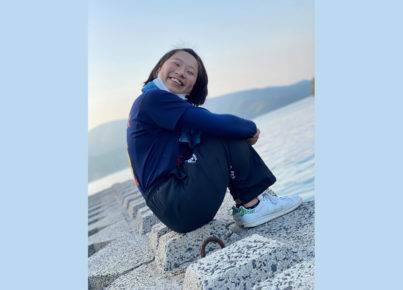“Lull after the storm”
Ong Wei Yi, Nikita
High School student
Singapore
COVID-19 swept the world off its course without warning, and would (almost unimaginably yet surely) pass, as silently as it had come, save for the millions of lives it had taken and billions it has ravaged. In its wake, what is left would be a permanent shift in the way the world is run for generations to come, for better or for worse.
The pandemic has exposed both the good and the ugly of society. In Singapore’s context, it had brought to the foreground underlying contentions we as a society have swept under the rug. Parallels could be seen as with other countries where disadvantaged groups were disproportionately affected by the virus. Existing socio-economic circumstances rendered these groups more vulnerable. In this case, migrant workers are subjected to overcrowded living conditions and poor healthcare coverage, among other severe issues, stemming from their deportability and thus scathing lack of political leverage.
As the pandemic struck, this materialised in the severe dormitory outbreaks in Singapore. In response, my school had given out care packages containing hand sanitizers, wet tissue and other hygiene products to students which were not for personal use. Instead, the intention was for students to give them to people who are usually “invisible”, including cleaning staff and security guards. Alternatively, students could pass it to the collection point where the care packages would be received by migrant workers. Students could write a note to be included in the package as a means of showing appreciation. The significance of the contributions of workers often go underappreciated and yet are equally essential to the functioning of the country. I thought it was an encouraging initiative to prompt students to actively think about and thus become more conscious about the people whom they would otherwise overlook in their daily lives.
Cliched as it may be, these students would then go on to be the leaders of the future and by recognising the need to instil outward looking mindsets, such civic education and initiatives are the stepping stones to shaping a more cohesive society. We had also seen many kind Singaporeans from all walks of life come forward to provide meals to frontline healthcare workers and donate items to and befriend migrant workers. From here on, society would ideally wake up to the pressing need to progress in a more inclusive fashion. Taking measures to promote inclusive growth may be perceived to hinder rapid economic growth but it ultimately protects collective interests, mitigating a repeat of such systemic failures. To simply exist in the same physical space does not represent integration.
On a more macroscopic level, the central theme around which TYCA surrounded – international cooperation – stood out particularly as we saw the attempts and failings of leaders in handling the pandemic. Both COVID-19 and the climate crisis, which we had learnt extensively about during TYCA, are global crises which affect countries regardless of borders, with developing countries having it worse more often than not. Therefore, global cohesiveness is ever so essential to facilitate recovery post-pandemic. This is especially so in view of the lasting social and economic ramifications of the pandemic that would take considerable time and resources to repair.
As countries focus on revitalising their economies to restore the standard of living of citizens, ideally in a sustainable and inclusive manner, the lessons from COVID-19 will hopefully remain in our collective psyche. These include consideration, caution and appreciation. Consideration: with heightened social responsibility, the mindfulness of how our actions affect our surroundings would foster a more harmonious community. Caution: as the situation improves, we have to avoid complacency which does not end well as seen with countries that had adopted overly lax regulations in hindsight. Appreciation: it took a pandemic to teach us to be more grateful for the people around us and occurrences which we took for granted such as gathering with friends. Furthermore, the digitised systems in across all domains, including commercial and educational, are likely to remain to differing extents, effort has to be put into ensuring all have the technical and financial ability to access these infrastructure.
Personally, as a graduating student, COVID-19 strengthened my conviction in becoming a social worker. With both time for rumination as well as the situation unfolding, making the stark difference between the haves and the have-nots ever so pronounced, it became clear to me as well what I want to pursue. Most prevalently, this line of work hopes to reduce inequality, one of the Sustainable Development Goals we had explored during the course of TYCA. Through stop gap measures in the short term and guiding clients towards long-term solutions, the goal is to empower clients to better fulfil their potential, reducing structural obstacles due to socio-economic circumstances.
Just as the world falls into pace with the order of the new normal, it too would be turned on its own head when the remnants of the disease wither.
COVID-19は、何の前触れもなく、世界を進路から振り落としました。しかし、これまでに奪ってきた何百人もの命や、何十億もの荒廃させてきたものを救いながら(ほとんど想像を絶するほどに、しかし確実に)やってきた時と同様に、静かに過ぎ去るでしょう。
その後に残されたものは、良くも悪くも何世代にもわたって世界の在り方について、永久的な変化をもたらすことになるでしょう。
パンデミックは、社会の良い面と悪い面の両方を露呈しました。シンガポールでは、私たちが社会の中で隠蔽してきた根本的な問題が明るみに出ました。似たようなことが他の国でも見られました。そういった国では、社会的弱者に属するグループの人たちがウィルスの影響を非常に強く受けてしまいました。既存の社会経済的状況が、社会的弱者の人たちをより脆弱にしていたのです。この場合、移民労働者は過密な生活環境や貧弱な医療保険などの問題にさらされています。しかし、さらに深刻な問題として、こういった状況は、彼らが国外追放される可能性があることや、政治的な影響力が不足していることに起因してるということが挙げられます。
パンデミックが発生すると、シンガポールでは寮において、深刻な感染拡大が起こりました。私の学校では、手指消毒剤やウェットティッシュなどの衛生用品が入ったケアパッケージを学生に配りましたが、これらは個人的に使うものではありませんでした。その代わりに、学生が清掃員や警備員など、普段は「軽視されている人」にパッケージを渡すという意図がありました。あるいは、出稼ぎ労働者がケアパッケージを受け取る回収場所に持ち込むこともできました。学生は、感謝の気持ちを表す手段として、パッケージに入れる手紙を書くこともできます。労働者の貢献の意義は過小評価されがちですが、国が機能を維持するためには、不可欠なものです。これは、学生たちが日常生活の中で見過ごしている人たちのことを積極的に考え、意識を高めようとするきっかけになるような、心強い取り組みだと思いました。
言い古されてきたことかも知れませんが、このような学生たちが将来のリーダーになり、外向的な考えを持つことの必要性について市民に浸透させ、そういった市民教育の取り組みが、よりまとまりのある社会を形成するための足がかりになるのでは、と思います。また、現場の医療従事者に食事を提供したり、出稼ぎ労働者に物品を寄付したり、親身に接するシンガポール人の姿も多く見られました。これからは、社会がもっと包括的に発展していく必要性に目覚めていくことが理想的だと思います。包括的な成長を促進するための措置は、急速な経済成長を阻害することになると思われるかもしれません。しかし、最終的には集団の利益を保護し、これまでにあった、制度上の失敗を繰り返さずに済むようになるでしょう。統合、とは単に同じ物理的空間に存在するということではないのです。
よりマクロなレベルでは、パンデミックへの対応における指導者の試みと失敗を目の当たりにしたとき、TYCAが取り扱っていた中心的なテーマである国際協力が突出していたように思います。COVID-19とTYCAで幅広く学んだ気候危機は、いずれも国境に関係なく各国に影響を及ぼす世界的な危機ですが、発展途上国の方がより深刻な状況に陥ることが多いのです。したがって、パンデミック後の復興を促進するためには、世界的な結束力が不可欠なのです。パンデミックが原因となり、細分化してしまった社会や経済を立て直していくには、相当の時間と資源が必要となるでしょう。
各国が市民の生活水準を回復させるために、理想的には持続可能で包括的な方法で経済を活性化させていく中で、COVID-19で得た教訓が私たちの心に残ることを期待しています。その中には、配慮、注意、感謝が含まれています。配慮:社会的責任を高めることで、私たちの行動が周囲にどのような影響を与えるかを意識することで、より調和のとれたコミュニティを育むことになるでしょう。注意:状況が改善されてくると、後から見た時、甘すぎる規制を採用していた国のように、自己満足に陥らないようにしなければなりません。感謝:周りの人々の存在や、友人との集まりなど、当たり前と思っていたことにもっと感謝するように教えてくれたのは、パンデミックそのものでした。さらに、商業と教育を含むすべての領域でデジタル化されたシステムは、さらなる範囲に及んでいくでしょう。故に、このようなインフラに全ての人たちがアクセスできるように、技術的・経済的能力が担保されるよう、尽力するべきです。
個人的には、卒業を控えた学生として、COVID-19 は、ソーシャルワーカーになるという確信を強めてくれました。考えるための時間はあったものの、状況がはっきりとしない中、これまでは表に出なかった、持っている人と持っていない人の格差を目の当たりにし、自分が何を追求したいのかが明確になりました。最も重要なのは、TYCAで探求した持続可能な開発目標の一つである不平等の削減です。短期的には応急処置的な対策を行い、長期的な解決策へと導くことで、社会経済的状況のための障害を減らし、依頼人がひめている力を最大限に発揮できるようにサポートしていきたいです。
世界が新しい日常の秩序に歩調を合わせるように、病気の残骸がなくなっていくと、異なる方向を見るようになるのです。








